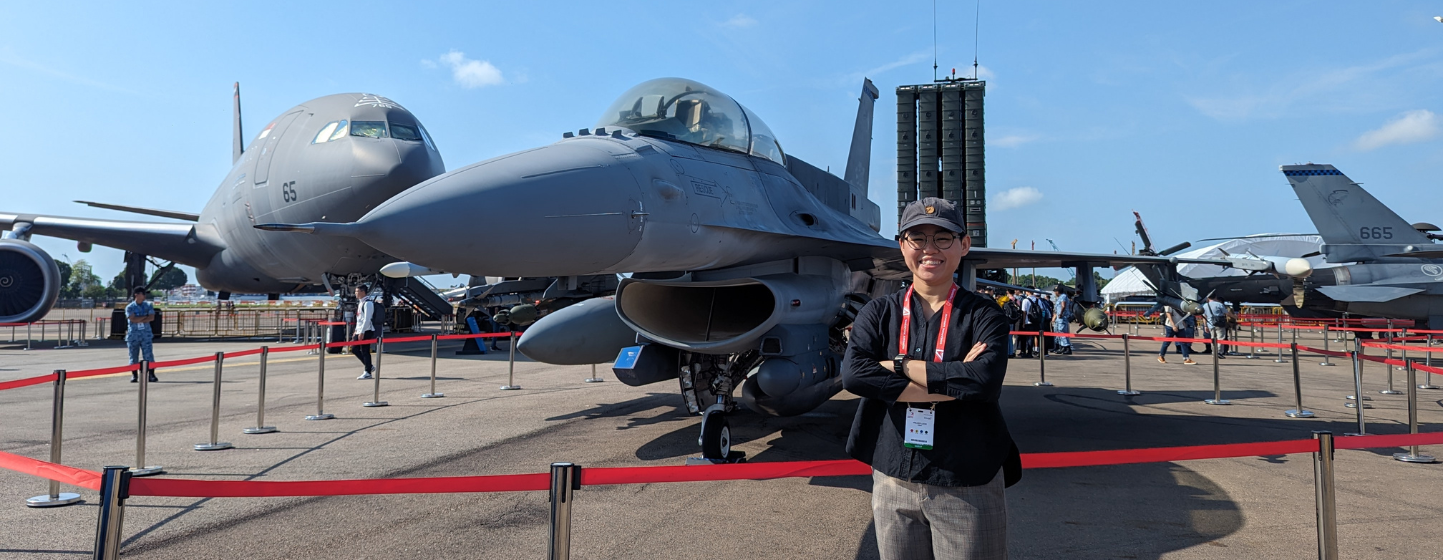Data Scientist
Charting New Frontiers: Unveiling Insights with RAiD's Data Scientist

Hello Melody, nice to meet you! Could you introduce yourself?
Hi everyone, I'm Melody. I initially signed on as an Air Warfare Officer (Air Traffic Control) with the RSAF, but requested for a revocation to become an Air Force Engineer (Digital) so that I can work in RAiD as a Data Scientist. I'm currently working in the RSAF Data Office. Together with the Mission Data Team, we deal with data strategy, data governance, and data-related projects within the RSAF.
What inspired you to join RAiD, and has the experience matched your expectations?
I wanted to serve the nation in a way that combines my two main interests: national air defence and data science. My attraction to the Air Force's fast-paced and dynamic environment led me to sign on as an Air Warfare Officer (AWO) initially. My interest in data science was sparked during my time with the Joint Task Force (Assurance), where we managed the COVID-19 outbreak in the dormitories. I witnessed and experienced firsthand how effective data management - from robust collection and cleaning to efficient storage - could revolutionise an organisation's day-to-day operations. It was also enlightening to see how data could be leveraged to derive insights and inform decision-making. RAiD's mission of bringing 'Smarts and Smiles' to our Air Force and Airmen deeply resonated with me, prompting me to seize the opportunity to join. I am committed to contributing to the RSAF's digital transformation, and hope to play a part in developing and enabling smart warfighting capabilities through exploiting data, so that the RSAF can better defend our skies. My experience so far has exceeded my expectations - I never thought that I would be doing what I am doing today - working in a "tech startup" almost - in the Air Force.
What aspect of the RAiD's culture do you appreciate the most, and how does it support your work as a data scientist?
I really appreciate how agile RAiD is, our "dare-to-do" spirit, our desire
and willingness to learn new things and share knowledge with one another.
For example, I've been interested to learn more about cloud computing and
deployment, as I aim to work towards becoming an end-to-end data scientist.
RAiD has offered a wealth of resources and knowledgeable colleagues who
are always ready to help me with my queries. The diversity of backgrounds
among the RAiDers enriches my work as a data scientist further. We have
RAiDers from the Air Force, who bring deep operational knowledge and experience.
This helps me gain domain-specific insights and provides operational context
to my data science projects, allowing me to better scope and tailor my
approaches. We also have RAiDers who worked in various industries before,
who introduce new perspectives to the RSAF. We also have RAiDers with deep
technical expertise and collaborative opportunities with both the private
and public sectors. This exposure allows me to learn industry best practices
as a data scientist and apply them in RAiD.
In what ways has working with RAiD challenged you and helped you grow as a data scientist?
Working in the defence sector, especially in a military environment, does come with its unique set of challenges. One of the key challenges stems from the nature of our work - handling sensitive or classified data. We have to be aware of security protocols and implications and adhere to these measures, even if it sometimes means sacrificing the 'glamour' often associated with tech industry practices and big tech firms. However, knowing that the work I do plays a part in safeguarding Singapore’s skies makes it worth it. Additionally, RAiD being a relatively new entity brings its own set of uncertainties and dynamics. However, this is also one of the reasons why a career in RAiD is so exciting and fulfilling. Another personal challenge has been enhancing my operational or domain knowledge, considering I'm not directly involved in operations. This gap pushed me to develop my soft skills, particularly in effective communication and knowledge gathering. These challenges have helped me grow, not just as a data scientist, but also as an airman.
Lastly, if you could use data to solve any world problem, what would it be and why?
If I could use the power of data to solve any global issue, it would be climate change. This issue goes beyond the realm of national defence, and even beyond national borders. Climate change affects not just everyone around the world, but also every living thing on the planet. We are already feeling the negative impacts of it - is it just me, or has the weather only been getting hotter and hotter? Data can definitely help in addressing climate change. By leveraging environmental data, we can gain deeper insights into patterns and causes of climate shifts. This would help us develop more effective strategies for mitigation, enhance resource management, and drive innovation in green technologies. Doing so would allow us to take proactive steps to safeguard our planet and combat climate change.
Responsibilities
Analyse and interpret complex and large data to inform operational decisions.
Core work centres around data analytics, predictive modelling, machine learning and AI
Contribute to the development of solution related to mission data for the RSAF

